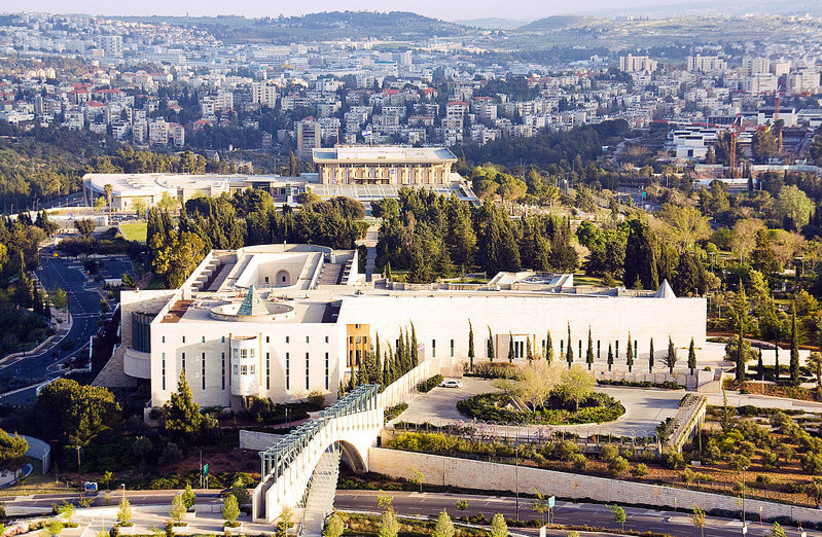Judicial reform: Netanyahu is restoring balance to Israeli democracy - opinion

This is not the first time Netanyahu has been villainized for a much-needed change by politicians who manipulate the narrative for their own political gains.
Winston Churchill once famously said, “You have enemies? Good. That means you’ve stood up for something, sometime in your life.”
Indeed, Prime Minister Benjamin Netanyahu has a lot of enemies. He started gathering them early on in his career when he set out to change the power structures in Israel in order to strengthen its economy and security.
When he stood up to the unions as Finance Minister in 2004, in a bid to liberalize Israel’s economy from the grips of its socialist roots, he was dubbed the enemy of the workers. What he in fact accomplished was increased Israeli workforce productivity, keeping the Israeli shekel strong in the midst of the 2008 global recession and leading a revolution in foreign direct investments. Today, Israel has gone, in record time, from non-membership in the OECD to ranking the 4th best-performing economy among its members.
When he cut costly incremental family entitlements and thus reformed the welfare policy, he faced public riots and threats of paralyzing general strikes. These painful and politically unpopular reforms reduced welfare dependency, basically, shaping Israel’s modern and liberal economy.
When Netanyahu as prime minister publically opposed the policy of multiple world leaders to sign a deal with Iran, he was dubbed a warmonger. Today, if that deal would have been signed, in a few short years a regime currently murdering its own people would have acquired nuclear capabilities.
Netanyahu is bringing much-needed change to Israel's Supreme Court
Currently, Netanyahu is tackling another unpopular subject: the imbalance of power in our democracy. He is committed to restoring checks and balances between the three branches of government. Israel is the only liberal democracy where the judiciary is the sole arbiter of the scope of its own authority, making the Supreme Court’s power unchecked.
The Supreme Court essentially appoints itself. It is a revolving door that, unsurprisingly, does not reflect the ethnic and political diversity of its country. The process of appointment has zero transparency and subsequently decides internally which judges should hear which cases. There has never been a situation in Israel in which all 15 justices hear one case.
Despite Israel not having a Constitution, the Israeli Supreme Court granted itself the ability to engage in Constitutional Review some 30 years ago, deciding which laws fall under its authority and thereby placing itself above the legislature. This is not the separation of powers fundamental for a healthy democracy. Instead, it is the blurring of lines.
The irony is that even Netanyahu’s disgruntled ex-partners know this and have been talking about it for years. Opposition Leader MK Yair Lapid’s own father, former Justice Minister Tommy Lapid, unceremoniously referred to Israel’s judicial and prosecution system as a terror cell.
To paint the judicial reforms as designed to impact Netanyahu’s cases is simply dishonest, the reforms will not affect his ongoing trials. Quite the opposite: the trials are a symptom of a broken system, not the raison d’etre of its correction. It’s almost like blaming the ozone layer for its own holes.
Netanyahu is and has always been a transformational leader. Impending power shifts inevitably lead to public backlash, it is the nature of the beast. The message being peddled is that this is the end of democracy in order to mobilize mass protests is disingenuous and ignores the glaring need for reform.
This is not the first time Netanyahu has been villainized for a much-needed change by politicians who manipulate the narrative for their own political gains and people who are naturally scared of change. Israel’s strong economic, security and diplomatic status both internally and externally is very much the result of Netanyahu’s unpopular reforms that somehow keep getting him re-elected.
The writer is the deputy mayor of Jerusalem.
Jerusalem Post Store
`; document.getElementById("linkPremium").innerHTML = cont; var divWithLink = document.getElementById("premium-link"); if (divWithLink !== null && divWithLink !== 'undefined') { divWithLink.style.border = "solid 1px #cb0f3e"; divWithLink.style.textAlign = "center"; divWithLink.style.marginBottom = "15px"; divWithLink.style.marginTop = "15px"; divWithLink.style.width = "100%"; divWithLink.style.backgroundColor = "#122952"; divWithLink.style.color = "#ffffff"; divWithLink.style.lineHeight = "1.5"; } } (function (v, i) { });

